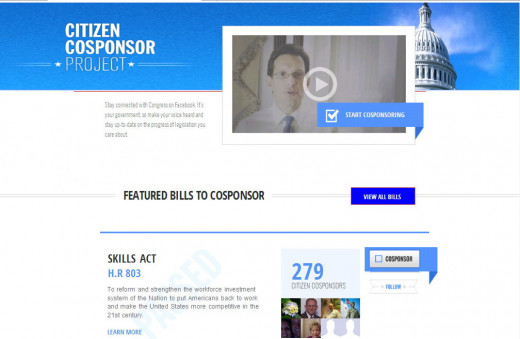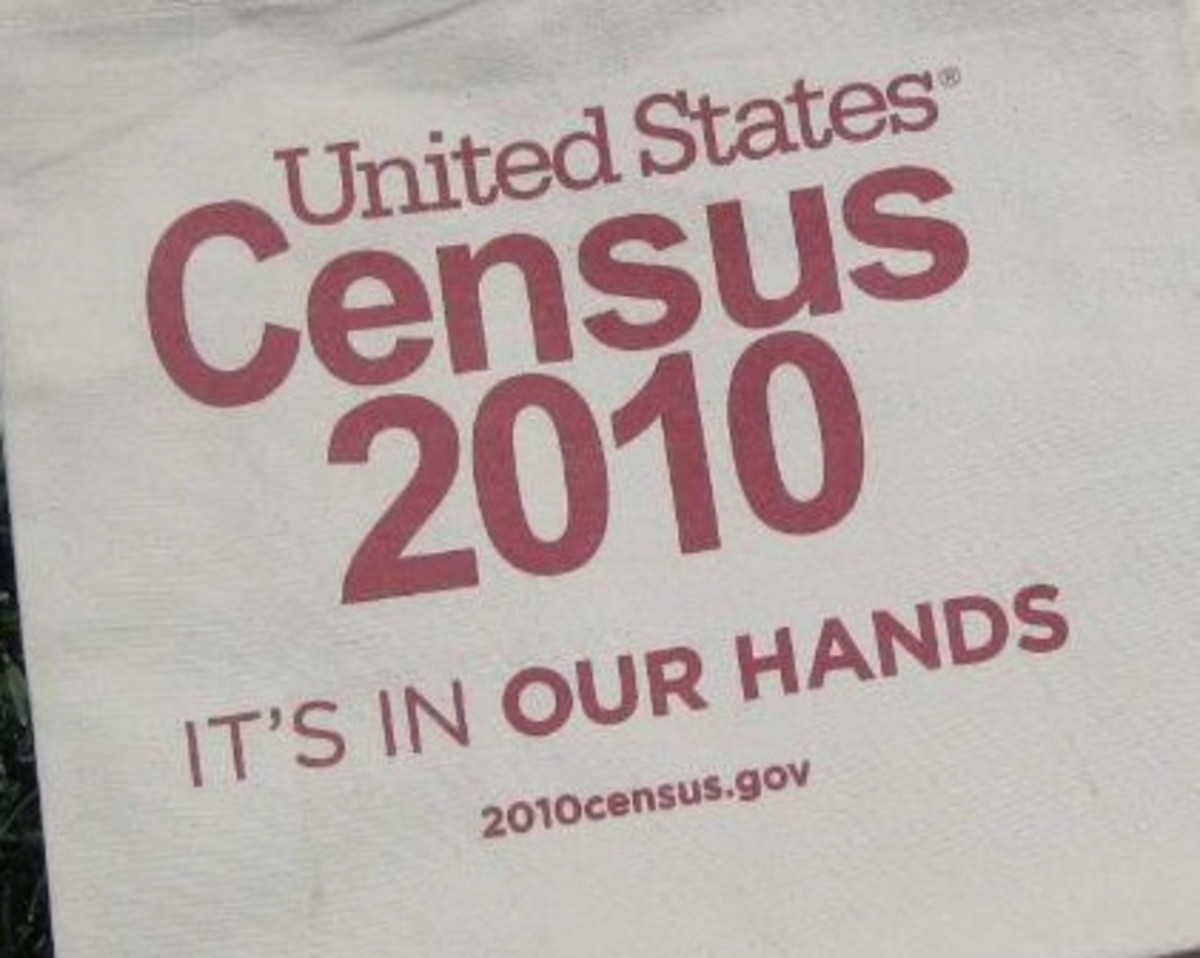Open Government
Where We Were Then - 2010
Marshall McLuhan is credited with the saying “The medium is the message”. In some ways, I think this has been a key factor with respect to how our government has evolved.
When our country was first founded, messages were conveyed from local meetings to Congress by horseback courier. Messages were relayed back the same way. The messages were then shared with the public through local newspapers. As a nation, we were young and relatively small, and the pace of government was slow. Politically, there were two major political parties, the Whigs and the Democratic-Republicans.
By the mid-1800's, both the railroad and telegraph had been invented, and messages could be relayed nearly instantaneously by wire, and then published in the local newspapers. People could move around the country more quickly. We were still a small country, but the pace of government and information exchange had been speeded up. The major political parties became the Whigs and the Democrats. Later in the mid 1850's, the major parties became Democrats and the Republicans.
By 1964, we had invented telephone, radio and television. Our messages to our representatives were by mail or phone call, and our feedback was through demonstrations, popularized media, and eventually cable. The speed of communication became faster and progressively more often from our elected officials, and slower with respect to feedback to them.
In these modern times, the new media is the internet and cable is interactive. We have opportunity to provide a more nearly instantaneous feedback to our Congress. It is hard to believe that the internet will not be part of our future way of conveying messages to our representatives.
Open Government Directive
What follows is a quick half-day review of the steps we are taking towards this new opportunity for interchange. An internet keyword search for the phrase "Open Government" gave a lot of links. Some of them even look official, so here is a quick discussion. Since Health Care generates all the interest nowadays, I wll also mention what I was able to find on that topic.
President Obama issued an “Open Government Directive” December 8, 2009. Milestones associated with the directive were at http://www.whitehouse.gov/open/about/milestones. When it originally came out, you could read the article and find links to the directive, links to a stoplight chart (dashboard), links to places where you can provide feedback, and an obligatory news blurb under “About Open Government”. The directive was about getting our executive agencies set up to support an open government concept.
Shortly after President Trump, the information Under the "issues" button for "Health Care" was removed from the list of options (http://www.whitehouse.gov/issues/health-care).
This link allowed you to read through he presidents’ plan. I did but did not provide any links that allowed us to write our congressman on the issue. Neither was their a way to provide other forms of feedback to our representatives. It is great to share a plan, but the information flow needs to be bi-directional. So, how do we communicate with our House of Representatives to let them know how we feel, or to share the comments we have?
Open Congress (This section subject to Churn)
The pace of change has outpaced the currency of this article. The internet has proven to be evolving so fast that efforts to convey how to access information are often replaced with new methods before folks can learn widely how to use those methods. In some respects, this is similar to our legal system, where laws change so often that we cannot keep up.
Some say the pace of change has evolved into churn.
Nevertheless, the original text is retained below for historical purposes.
The next keyword search was for the term ‘Open Congress’. There was no official looking government sponsored sites in the list. The top result is http://www.opencongress.org/. This website is sponsored by the Participatory Politics Foundation and the Sunlight Foundation. The website has a link at the top of the page that says ‘Learn how to track, comment, and share’. At the bottom of the page is a link “About OpenCongress”. In the middle of the page, there is a place where you can enter your zip-code and get quick insight into how your senators and representatives vote. I entered my zip code and found that my senators vote predominantly with their party (over 85% of the time) but have low ‘user approval’ (less than 40%), while my Congressman votes with the party over 90% of the time and has a better than 50% user approval.
Interesting, but, is there a way to provide feedback or a way to share points-of-view. The top bill on this page is the Health Care Bill. Following that link gives a page with a link that says 'full text, all 2070 pages'. The page also has a link to comments, blogs, and other feedback mechanisms. So off to comments I went. Indeed, this button provides a place for feedback, and I scanned through it. As I was reading I noted an item about microchips, and I asked myself “Is it true the bill includes provision to be implanted with microchips? “ Huh? So, I decided to press forward and see what was in the full text. Attempting this link from OpenCongress.org broke my internet explorer.
A second check with an internet search engine on the phrase ‘HR 3962’ provided a link to our U.S House of Representatives Committee on Rules. This one looks like an official site. A pdf of the bill is available there (1990 pages), so I downloaded to see if some of the things had read were actually in the bill. (Who could have imagined folks would use ‘pdf’ as a word in a sentence.)
§ Question: Is there really something in this bill about provisions to implant microchips? First search ‘microchips’. No hits. Second search ‘implant’. No hits. Test Search ‘H’. Lots of hits. Third search ‘Chip”. Many hits discussing “Children’s’ Health Insurance Program”, and health care for the Chippewa. Fourth search ‘Electronic’. These hits mostly seem to talk about using electronic data exchange methods (internet). In any case, if there’s something in there about implanting microchips, someone will have to point me to it and tell me how to interpret the wording to mean ‘implant microchips’. For now, I read that claim as bogus.
§ Question: Is there really something in this bill about dealing with the unconstitutional parts of the Bill? Yup, there is. Search on phrase ‘unconstitutional’ points to Section 255. This claim is true.
Summary (as of 2016 - see new developments below)
still
There is some hope here. The information is out there, but for the most part, you still have to look really hard to figure out how to provide feedback. There are newer mechanisms in place to make information available to the public, and to solicit information back from the public. Web-sites that solicit feedback would be much better appreciated and more likely to solicit intelligent comments if we knew that our representatives were actually paying attention to what was being said. Old fashioned letters and telephone messages should not be the only way to reach out to your representative. Telephone and news polls should not be the only way to gauge response from the constituency. The internet is here, let’s use it.
Until then, our only means of encouraging innovation in the methods of communication is to vote. With the internet, it is likely that the notion that 'politicians are elected to tell us how to live' will become a thing of the past.
Former CoSponsor.gov

New Developments - 2013
In 2013 a new website was created that allowed ordinary United States citizens to add themselves as co-sponsors to Bills put before Congress. This continued a trend to encourage citizens to become engaged in their government on issues of national concern.
As of 2016 this web-site had gone away. This part of the experiment in Open Government appears to have failed.








